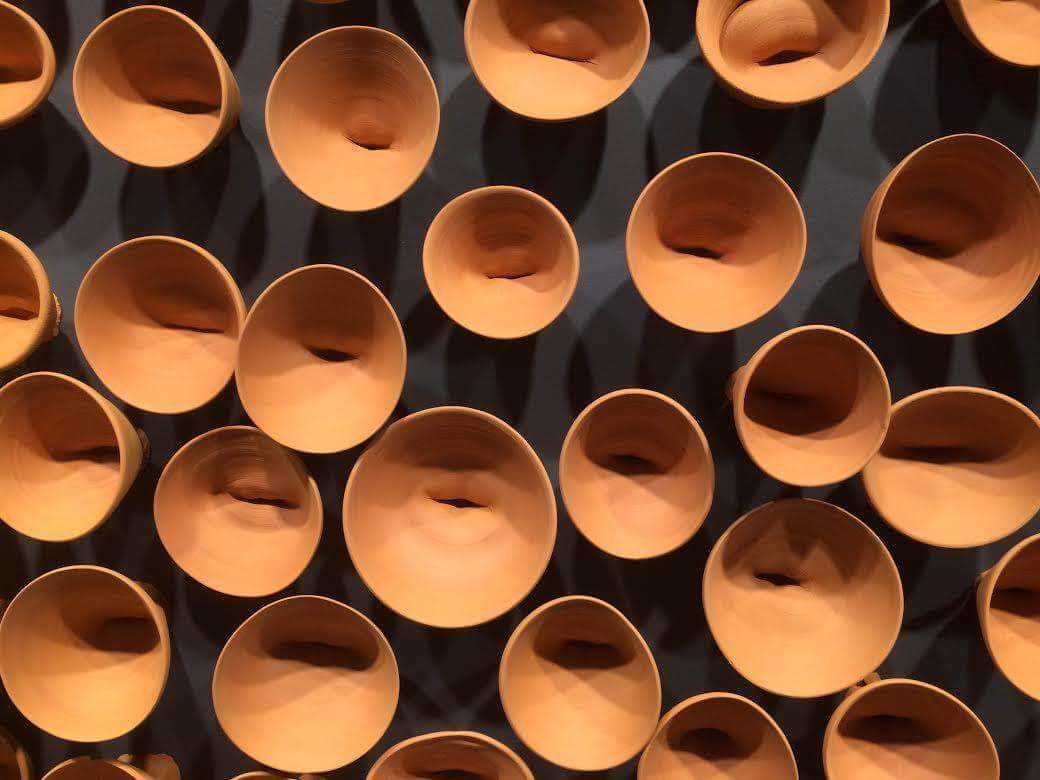
Murmuris 57 Biennal d’Art de Venècia
In Murmuri we find the not only conceptual, but also sensual, tactile, political and subversive aspect of other works that have preceded it. In a certain way, Eve Ariza’s work simultaneously distills influences and concepts, recalibrating this history of ceramics to make it her own. In addition to the importance of the significance of the material, the technique used by Ariza is in itself an action that gives meaning to the work in general.
The installation has approximately nine thousand bowls turned one by one, by the artist’s hand.
The creative process is therefore extremely physical, lasting around six months and, without a doubt, becoming monotonous. We can imagine that the artist must accept, in a way, following the tempo dictated by the material itself. In the small town of Sainte Colombe (France), Ariza has set up his workshop there, especially to create the murmurs. In an almost completely natural environment, he concentrates on transforming each pile of soft clay into a transmitting object. As an act of quiet rebellion in a world of contemporary art where frenzy reigns, Ariza allows himself the luxury or the imperative need to listen and live to the rhythm of the mud. By placing the murmurs directly on a vertical support, magic works. The installation is transformed into a sensory experience because each bowl reveals, if listened to closely enough, its own natural murmur. Freed from traditional narrative content, the work provokes a physical dialogue with the viewer from the outset.
Ariza places the viewer at the center of that original vibration that constituted all the matter in the universe. It is a barely perceptible vibration that incites silence, meditation, even though the installation is located in the midst of the hustle and bustle of the Venice Biennale. The function of the contemporary artist is to highlight current issues, open consciences and elevate spirits.El procés de creació és així doncs extremadament físic, amb una durada d’uns sis mesos i, sens dubte, arriba a ser monòton.
Throughout her career, Eve Ariza has sought to make people reflect on human communication and the difficulties it faces in our post-consumer society. Through ceramics, but also with activist happenings, she has often been critical of the Andorran microcosm and its image as a country solely oriented towards commercial activities. Murmuri is conceptualized as another stage in her fight against “blah”, that is, against the excessive consumption of images and sounds that seems to increasingly become the sole foundation of our societies. In this sense, it is a staunch criticism of that “liquid society” described by the philosopher Zygmunt Bauman, in which the individual no longer wants to integrate into a community or an established order, but rather aspires insatiably to the satisfaction of his own desires.
Read more PDF Eve ArizaFacebook Twitter Whatsapp E-mail